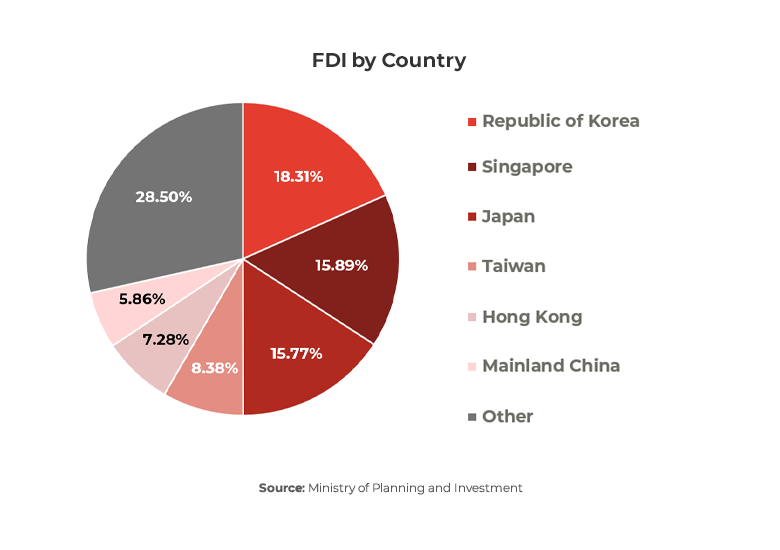ILO Declaration on Fundamental Principles and Rights at Work
Whereas the ILO was founded in the conviction that social justiceis essen-
tial to universal and lasting peace;
Whereas economic growth is essential but not sufficient to ensure equity, social progress and the eradication of poverty, confirming the need forthe ILO to promote strongsocial policies, justiceand democratic institutions;
Whereas the ILO should, now more than ever, draw upon all its standard- setting, technical cooperation and research resources in all its areas of competence, in particular employment, vocational training and working conditions, to ensurethat, in the context of a globalstrategy for economic and social development, economic and socialpolicies are mutually reinforcing components in orderto create broad-based sustainable development;
Whereas the ILO should give special attention to the problems of persons with special social needs, particularly the unemployed and migrant workers, and mobilize and encourage international, regional and national efforts aimed at resolving their problems, and promote effective policiesaimed at job creation;
Whereas, in seeking to maintain the link betweensocial progress and eco- nomic growth, the guarantee of fundamental principles and rights atwork is of particular significance in that it enables the persons concerned to claim freely and on the basis of equalityof opportunity their fair share of the wealth which they have helped to generate, and to achieve fullytheir human potential;
Whereas the ILO is the constitutionally mandated international organization and the competent body to set and deal with international labour standards, and enjoys universal support and acknowledgement in promoting fundamental rights at work as the expression of its con- stitutional principles;
Whereas it is urgent, in a situation of growing economic interdependence, to reaffirm the immutable nature of the fundamental principles and rights embodiedin the Constitution of the Organization and to promote their universal application;
The International Labour Conference,
1. Recalls:
(a) that in freely joining the ILO, all Members have endorsed theprinciples and rights set out in its Constitution and in the Declaration of Philadelphia, and have undertaken to work towards attaining the overall objectives of the Organization to the best of theirresources and fullyin line with their specific circumstances;
(b) that these principles and rights have been expressed and developed in the form of specific rights and obligations in Conventions recognized as fundamental both inside and outside the Organization.
2. Declares that all Members, even if they have not ratified the Conventions in question, have an obligation, arising from the very fact of membership in the Organization, to respect, to promote and torealize, in good faith and in accordance with the Constitution, the principles concerning the fundamental rightswhich are the sub- ject of those Conventions, namely:
(a) freedom of association and the effective recognition of the right
to collective bargaining;
(b) theelimination of all forms of forced or compulsory labour;
(c) the effective abolition of child labour;
(d) theelimination of discrimination in respect of employment and
occupation; and
(e) a safe and healthy working environment.
3. Recognizes the obligation on the Organization to assist its Members,
in response to their established and expressed needs, in order to attain these objectives by making full use of its constitutional, oper- ational and budgetary resources, including by the mobilization of external resources and support,as well as by encouraging other international organizations with which the ILO has established relations, pursuant to article 12 of its Constitution, to support these efforts:
(a) by offeringtechnical cooperationand advisoryservices topro- mote the ratification and implementation of the fundamental Conventions;
(b) by assistingthose Membersnot yetin aposition toratify some or allof theseConventions intheir effortsto respect,to promote and to realize the principles concerning fundamental rights which are the subject of those Conventions; and
(c) by helping the Members in their efforts to create a climate for
economic and social development.
4. Decides that,to give full effect to this Declaration, a promotional follow-up,which is meaningful and effective, shall be implemented in accordance with the measuresspecified in the annex hereto, which shall be considered as an integral part of this Declaration.
5. Stresses thatlabour standardsshould notbe usedfor protectionist trade purposes, and that nothing in this Declaration and its follow-up shall beinvoked orotherwise usedfor suchpurposes; inaddition, the comparative advantage of any country should in no way be called into question by this Declaration and its follow-up.
Annex (Revised)
Follow-up to the Declaration1
I. Overall purpose
-
The aim of the follow-up described below is to encourage the efforts made by the Members of the Organization to promote the fundamental principles and rights enshrined in the Constitution of the ILO and the Declaration of Philadelphia and reaffirmed in this Declaration.
-
In line with this objective, which is of a strictlypromotional na- ture, this follow-upwill allow the identification of areas in which the assist- ance of the Organization through its technical cooperation activities may prove useful to its Members to help them implement these fundamental principles and rights. It is not a substitute for the established supervisory mechanisms, nor shall it impede their functioning; consequently, specific situations within the purview of those mechanisms shall not be exam- ined or re-examined within the framework of this follow-up.
-
The twoaspects ofthis follow-up,described below,are based onexisting procedures:the annual follow-up concerningnon-ratified fun- damental Conventions will entail merely some adaptation of the present modalities of application ofarticle 19,paragraph 5(e),of theConstitution; and the GlobalReport on the effect givento the promotion of the funda- mental principles and rights at work that will serve to inform the recurrent discussion at the Conference on the needs of the Members, the ILO action undertaken,and theresults achievedin thepromotion ofthe fundamental principles and rights at work.
1 Ed. note: The original text of the Follow-up to the Declaration, as established by the International Labour Conference in 1998, was superseded by the revisedtext of the annex adopted by the International Labour Conference in 2010.
II. Annual follow-up concerning non-ratified fundamental Conventions
A. Purpose and scope
-
The purposeis to provide an opportunity to review each year, by means of simplified procedures, the efforts made in accordance with the Declaration by Members whichhave not yet ratified all the fundamental Conventions.
-
The follow-up will cover the five categories of fundamental principles and rights specified in the Declaration.
B. Modalities
-
The follow-upwill be basedon reports requested from Members under article 19, paragraph 5(e), of the Constitution. The report forms will be drawnup so as to obtaininformation from governments which have not ratifiedone or more of the fundamental Conventions, on any changes which may have taken place in their law and practice,taking due account of article 23 of the Constitution and established practice.
-
These reports, as compiled by the Office, will be reviewed by the
Governing Body. -
Adjustments to the Governing Body’s existing procedures should beexamined to allow Members which are not represented on the Governing Body to provide,in the most appropriate way, clarifications whichmight prove necessary or useful during Governing Body discussions to supple- ment the information contained in theirreports.
III. Global Report on fundamental principles and rights at work
A. Purpose and scope
-
The purposeof the Global Report is to providea dynamic global picture relating to the five categories of fundamental principles and rights at work noted during the preceding period, and to serve as a basis for assessing the effectiveness of the assistance provided by the Organization, and for determining priorities for the following period,including in the form of action plans for technical cooperation designed in particular to mobilize the internal and external resources necessary to carrythem out.
B. Modalities
-
The report will be drawn up under the responsibility of the Director-General on the basis of official information, or information gathered and assessed in accordance with established procedures. In the case of States which havenot ratifiedthe fundamentalConventions, itwill bebased in particular on the findings of the aforementioned annual follow-up. In the case of Members which have ratified the Conventions concerned, the report will bebased inparticular onreports asdealt withpursuant toarticle 22of the Constitution. It will also refer to the experience gained from technical cooperation and other relevant activities of the ILO.
-
This report will be submitted to the Conference for a recurrent discussion on the strategic objective of fundamental principles and rights at work based on the modalities agreedby the Governing Body. It will then be forthe Conference to draw conclusions from this discussion on all available ILO means of action, includingthe priorities and plans of action for technical cooperation to be implemented for the following period, and to guide the Governing Body and the Office in their responsibilities.
IV. It is understood that:
-
The Conference shall, in due course, review the operation of this follow-up in the light of the experience acquired to assess whether it has adequately fulfilled the overall purpose articulated in Part I.
Share this article
Follow us
13 Comments



itstitle
excerptsa
medicament kamagra pilule nist prescrire
acheter kamagra du jour au lendemain
cheap enclomiphene uk london
online order enclomiphene cheap online no prescription
online order androxal generic canadian
cheap androxal buy online canada
get dutasteride generic equivalent buy
purchase dutasteride usa buying
cheap flexeril cyclobenzaprine generic in united states
get flexeril cyclobenzaprine without prescriptions canada
purchase gabapentin canada on sale
no prescription gabapentin with fedex
order itraconazole no prescription online
purchase itraconazole generic mexico
purchase fildena buy germany
order fildena price usa
how to buy avodart canada mail order
buy cheap avodart purchase online from india
cheapest buy staxyn uk online pharmacy
order staxyn generic tablets
buy rifaximin generic switzerland
order rifaximin generic from the uk
buying xifaxan online from canada
how do i get xifaxan from my doctor